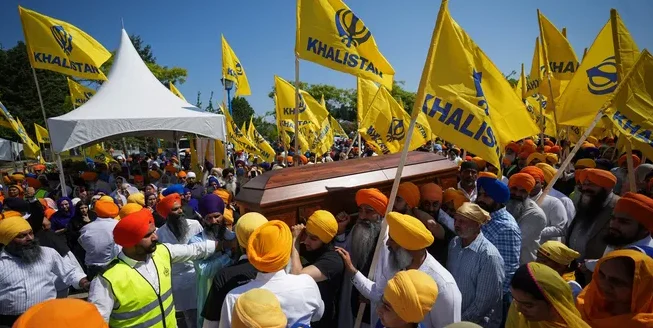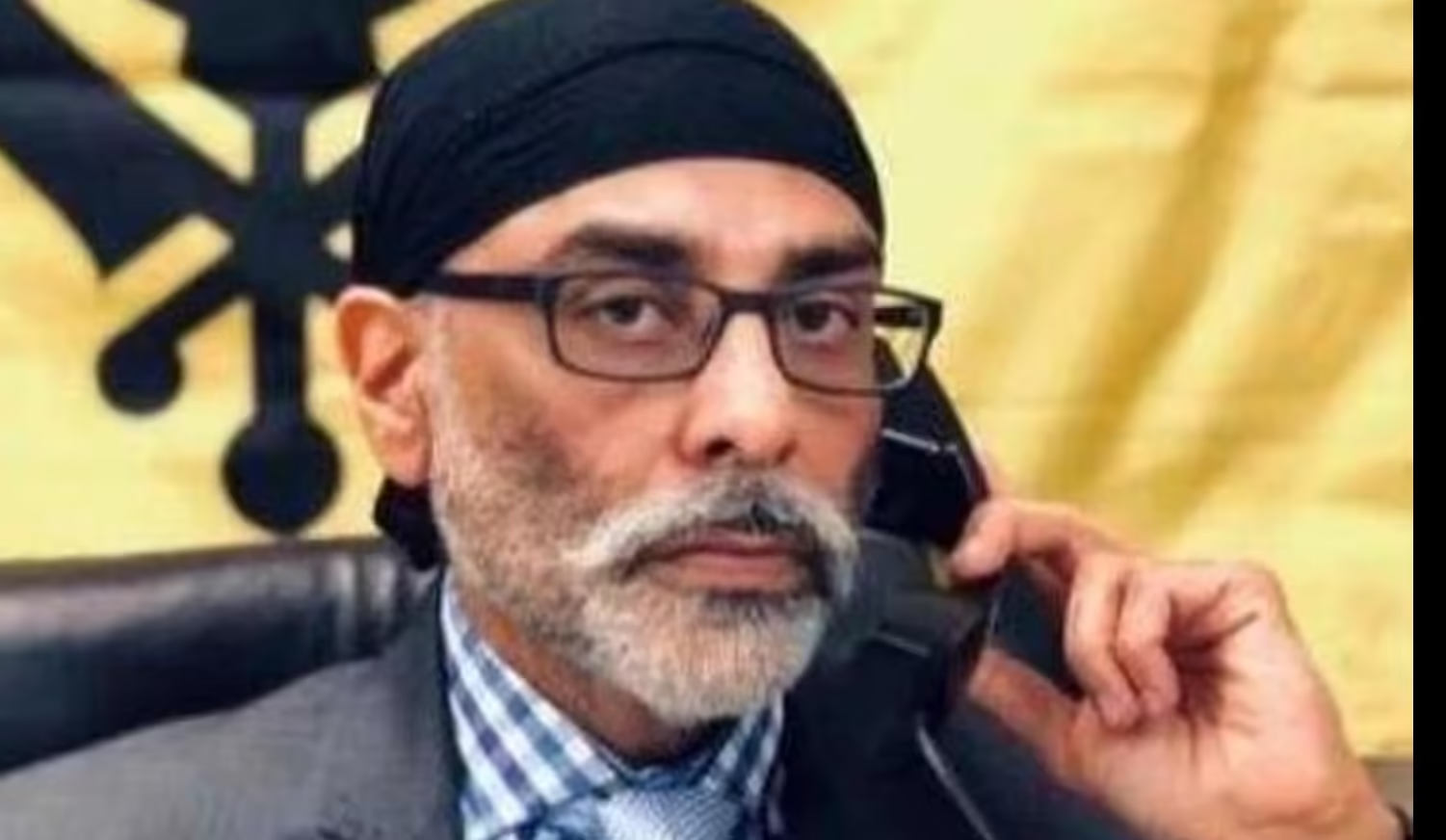U.S. Charges Indian National in Foiled Assassination Plot Against Sikh Activist: A Diplomatic Crisis Unfolds
The recent indictment of an Indian national by the United States has set off a diplomatic storm, raising serious questions about international law, intelligence activities, and the lengths nations might go to silence political dissidents. The U.S. Attorney’s Office for the Southern District of New York announced murder-for-hire and money laundering charges against Vikash Yadav, a former Indian intelligence officer, accusing him of orchestrating a plot to assassinate Gurpatwant Singh Pannun, a prominent advocate for Khalistan, a proposed independent Sikh state in India.
This development has intensified scrutiny on India’s foreign intelligence operations and its controversial approach to dealing with separatist movements, particularly those involving Sikh activists.
The Assassination Plot: Details of the Charges
The indictment against Vikash Yadav has brought to light a calculated conspiracy to eliminate Pannun, a U.S. citizen and vocal supporter of the Khalistan movement. The charges are significant because they directly implicate the Indian government in an assassination attempt on foreign soil, a move that could have severe diplomatic repercussions. According to the U.S. authorities, Yadav allegedly recruited Nikhil Gupta, another Indian national, to assist in the plot. Gupta, who was extradited to the United States from a prison in Prague earlier this year, is said to have played a key role in gathering critical information about Pannun’s whereabouts and daily routine.
Also Read: Dallas Burn Injury Lawyer: Navigating Legal Avenues for Justice
The indictment claims that Yadav provided Gupta with detailed personal information about Pannun, including his residence in New York City, phone numbers, and his day-to-day activities. This data was reportedly used to strategize the assassination attempt, which ultimately failed. The U.S. charges against Yadav and Gupta point to a broader network that may have been involved in targeting dissidents abroad, raising concerns about the scope of India’s intelligence operations outside its borders.
India’s Response to the Allegations
The Indian government has so far responded with caution to these serious allegations. While acknowledging its cooperation with the U.S. investigation, India has not directly addressed the charges against Yadav. In a press briefing, Randhir Jaiswal, spokesperson for India’s foreign ministry, stated that the individual identified as “CC-1” in the U.S. Justice Department’s indictment is no longer employed by the Indian government. However, Jaiswal did not confirm whether this individual is indeed Yadav, fueling speculation and leaving the door open for various interpretations of India’s involvement in the plot.
India’s muted response has not gone unnoticed. Observers see it as a diplomatic balancing act, possibly aimed at managing the fallout while trying to preserve its strategic relationship with the United States. The case against Yadav also puts a spotlight on India’s broader approach toward those advocating for Khalistan, which New Delhi considers a direct threat to its national integrity.
The Khalistan Movement and Gurpatwant Singh Pannun
Gurpatwant Singh Pannun, the target of the assassination plot, is a prominent Sikh activist and the face of the pro-Khalistan movement in the United States and Canada. India has labeled Pannun a terrorist, accusing him of inciting violence and supporting separatist activities aimed at destabilizing the Indian state. Pannun, however, denies these charges, stating that he is merely advocating for the creation of an independent Sikh homeland in India through peaceful means.
Also Read: JACKSONVILLE CAR ACCIDENT ATTORNEY: NAVIGATING LEGAL PATHWAYS TO JUSTICE
The Khalistan movement has long been a sensitive issue for India, and the country has consistently pushed back against what it sees as foreign support for separatist sentiments among the Sikh diaspora. The Indian government has often accused nations like Canada and the United States of providing a haven for individuals linked to this movement, straining diplomatic relations over their failure to curb these activities.
A Diplomatic Crisis with Canada
The indictment of Vikash Yadav came at a time when India’s relations with Canada were already under severe strain. Canadian Prime Minister Justin Trudeau recently accused Indian agents of being involved in the killing of Sikh separatist leader Hardeep Singh Nijjar in British Columbia. Trudeau’s allegations led to a major diplomatic spat between the two countries, with both sides expelling each other’s diplomats in a tit-for-tat move. India dismissed these allegations as “preposterous,” accusing Trudeau of pandering to Canada’s significant Sikh population for political gain.
The row between India and Canada has exposed underlying tensions that have been brewing for years. Canada has a large Sikh community, many of whom are vocal supporters of the Khalistan movement. India has repeatedly called on the Canadian government to take action against what it claims are anti-India elements operating within its borders, but it alleges that these calls have largely fallen on deaf ears. The Nijjar incident, coupled with Yadav’s indictment, has only served to deepen these divides.
Who is Vikash Yadav?
The indictment describes Vikash Yadav as a “citizen and resident of India” who has also gone by the names Vikas and Amanat. It states that he was a part of the Government of India’s cabinet secretariat, the department under which the Research and Analysis Wing (RAW), India’s premier intelligence agency, operates. According to the documents, Yadav held the position of a “Senior Field Officer” responsible for security management and intelligence operations.
Yadav’s background in India’s intelligence and paramilitary structures is significant. He has also served in the Central Reserve Police Force (CRPF), a paramilitary unit with a focus on counter-insurgency. His training in combat and intelligence tactics highlights his capability to orchestrate such a plot. His deep connections within India’s intelligence community have led many to speculate about the potential involvement of higher-ups in the Indian government in the assassination attempt against Pannun.
International Reactions and Consequences
The charges against Vikash Yadav have reverberated across international diplomatic channels. While the U.S. has expressed satisfaction with India’s cooperation in the ongoing investigation, the case raises broader questions about state-sponsored activities aimed at suppressing dissent in foreign countries. The involvement of a high-ranking intelligence officer in an assassination plot could have serious implications for India’s relationships with Western nations, particularly those that value human rights and freedom of speech.
As the case progresses, it may set a new precedent in how nations respond to allegations of politically motivated violence abroad. The indictment not only threatens to strain U.S.-India relations but could also lead to a reassessment of how Western nations engage with India on issues related to human rights and political freedoms. India’s hardline stance against the Khalistan movement is likely to come under increased scrutiny, especially in light of its alleged efforts to target dissidents outside its borders.
Conclusion
The indictment of Vikash Yadav is more than just a legal case; it is a flashpoint in the complex dynamics of global politics, intelligence operations, and international relations. The charges against him highlight the growing tensions between India and its critics, particularly those advocating for Sikh independence. As this case unfolds, it could redefine how nations like the United States and Canada deal with politically motivated violence and state-sponsored actions on their soil. It also serves as a reminder of the fine line between national security and respect for international law, a balance that India and its global partners will need to navigate carefully in the coming days.


